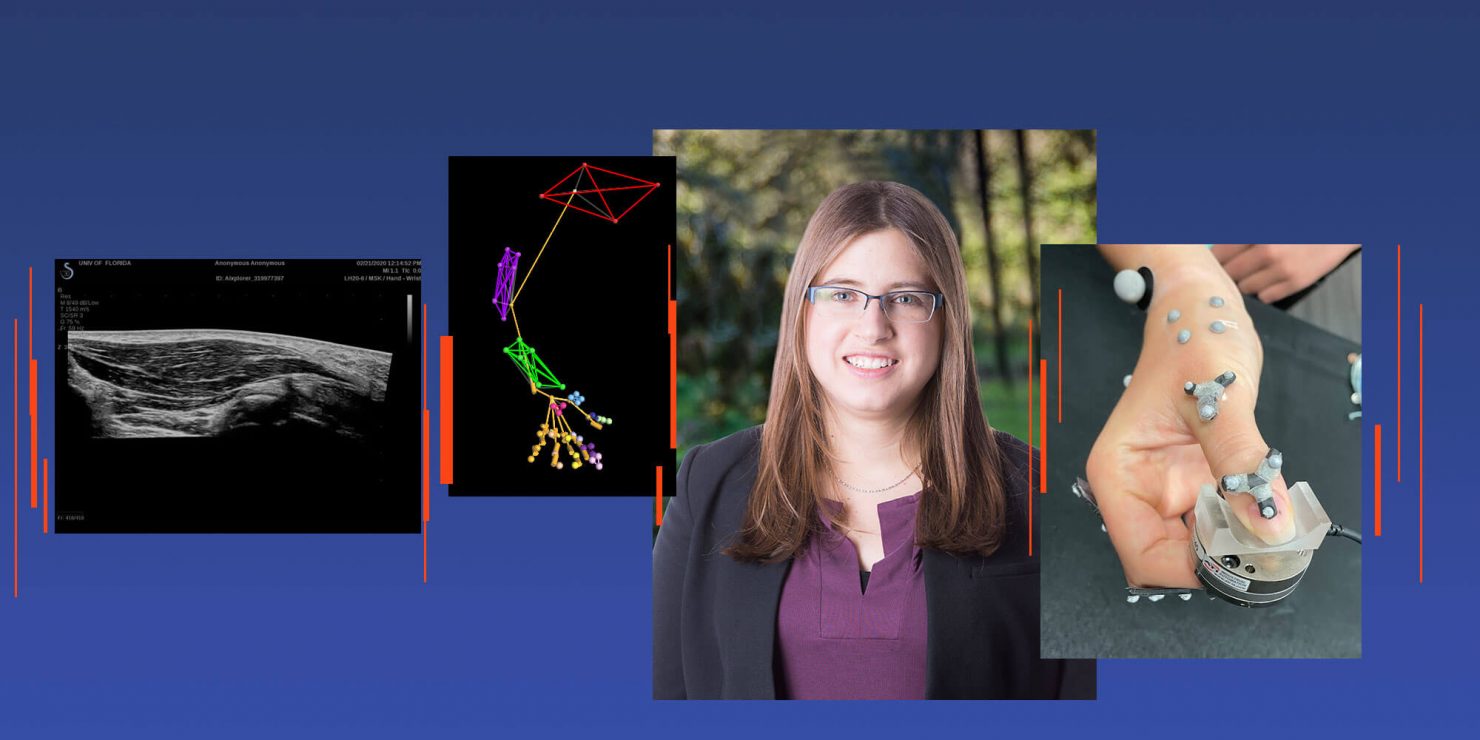This story was originally posted on the J. Crayton Pruitt Family Department of Biomedical Engineering website.
Jennifer Nichols, Ph.D., assistant professor in the J. Crayton Pruitt Department of Biomedical Engineering, and collaborators have been awarded a $2.2 million R01 grant from the NIH National Institute of Arthritis and Musculoskeletal and Skin Diseases (NIAMS) for her project titled “Carpometacarpal Osteoarthritis: Understanding the Intersection of Muscle Mechanics, Joint Instability, and Pain.”
Nichols (PI) and UF co-investigators, Yenisel Cruz-Almedia, Ph.D., associate professor and associate director, Pain Research & Intervention Center of Excellence (PRICE), Terrie Vasilopoulos, Ph.D., assistant professor of anesthesiology and orthopaedics and sports medicine, and Thomas Wright, M.D., Frank P. Glowczewskie professor and Division Chief of Hand and Upper Extremity will work together to advance the scientific and clinical study of the thumb.
In this proposal, the team will address a critical knowledge gap by examining the role of thumb muscles in modulating the two primary symptoms of thumb carpometacarpal osteoarthritis (CMC OA): pain and joint instability.
Individuals with CMC OA can lose up to 50% of hand function. Unfortunately, current conservative and surgical treatments do not provide the pain relief, strength, and mobility needed to restore both fine and gross motor function. Improvements in clinical therapies are limited by a lack of understanding regarding the complex relationship between thumb biomechanics and musculoskeletal pain.
Overall, this study will critically advance the mechanistic understanding of how the structure and function of thumb muscles change in the presence of CMC OA. By evaluating muscle mechanics, pain, and joint stability in individuals with and without CMC OA, the team will elucidate the co-evolution of muscle mechanics, symptom severity, and disease severity. This knowledge will inform current and future treatment of CMC OA, thereby improving the quality of life of individuals living with this disease.
